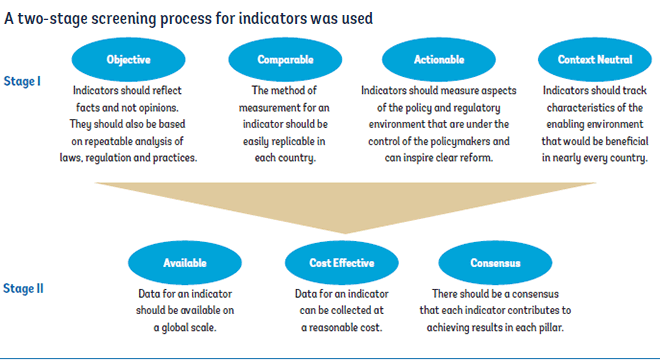After a preliminary long list of indicators was initially identified, guiding principles are applied through a two-stage screening process to arrive at the shortlist of indicators.
Stage I. Four principles of objectivity, comparability, action, and context-neutrality were applied to ensure that indicators will be deployable in almost every country.
An attribute that stood out at this stage was one of reconciling various approaches that are considered good practice at different time points. In renewable energy development for instance, feed-in-tariffs and reverse auctions have both been promoted at various times by different countries. So RISE attempts to be neutral and avoid making value judgments on the approach a country is taking to promote an outcome.
Stage II. Three principles of universal data availability, cost-effectiveness of the data collection, and presence of a common consensus were then used.





